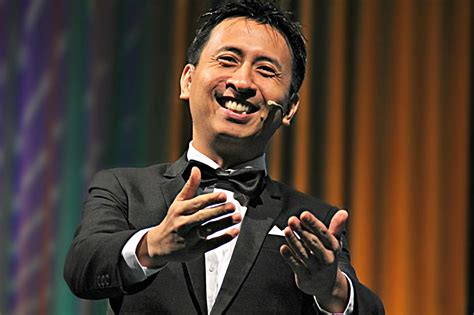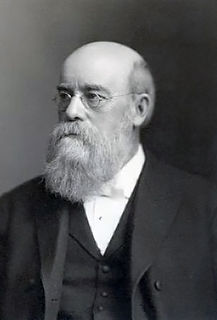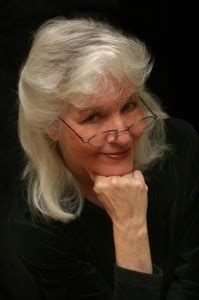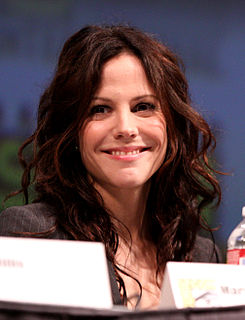Top 1200 Words Of Gratitude Quotes & Sayings - Page 6
Explore popular Words Of Gratitude quotes.
Last updated on October 21, 2024.
I’m not too keen on talking. I always have the feeling that the words are getting away from me, escaping and scattering. It’s not to do with vocabulary or meanings, because I know quite a lot of words, but when I come out with them they get confused and scattered. That’s why I avoid stories and speeches and just stick to answering the questions I’m asked. All the extra words, the overflow, I keep to myself, the words that I silently multiply to get close to the truth.
But the idols of the Market Place are the most troublesome of all: idols which have crept into the understanding through their alliances with words and names. For men believe that their reason governs words. But words turn and twist the understanding. This it is that has rendered philosophy and the sciences inactive. Words are mostly cut to the common fashion and draw the distinctions which are most obvious to the common understanding. Whenever an understanding of greater acuteness or more diligent observation would alter those lines to suit the true distinctions of nature, words complain.
We sometimes think that being grateful is what we do after our problems are solved, but how terribly shortsighted that is. How much of life do we miss by waiting to see the rainbow before thanking God that there is rain? Being grateful in times of distress does not mean that we are pleased with our circumstances. It does mean that through the eyes of faith we look beyond our present-day challenges. This is not a gratitude of the lips but of the soul. It is a gratitude that heals the heart and expands the mind.
This is a wonderful time to be living here on earth. Our opportunities are limitless. While there are some things wrong in the world today, there are many things right, such as teachers who teach, ministers who minister, marriages that make it, parents who sacrifice, and friends who help. "We can lift ourselves, and others as well, when we refuse to remain in the realm of negative thought and cultivate within our hearts an attitude of gratitude. If ingratitude be numbered among the serious sins, then gratitude takes its place among the noblest of virtues."
So Mo began filling the silence with words. He lured them out of the pages as if they had only been waiting for his voice, words long and short, words sharp and soft, cooing, purring words. They danced through the room, painting stained glass pictures, tickling the skin. Even when Meggie nodded off she could still hear them, although Mo had closed the book long ago. Words that explained the world to her, its dark side and its light side, words that built a wall to keep out bad dreams. And not a single bad dream came over that wall for the rest of the night.
We need to set goals for ourselves. Start today...if you don't have any goals, make your first goal getting some goals. You probably won't start living happily ever after, but you may start living happily, purposefully, and with gratitude...Goals are gratitude in action. They give us the opportunity to build on what we already have. While achieving goals can be a lengthy process, we can learn to be grateful for each stage in the process of setting and meeting goals.
If I love myself I will express that love in my interactions with you, and then I am being impeccable with the word, because that action will produce a like reaction. If I love you, then you will love me. If I insult you, you will insult me. If I have gratitude for you , you will have gratitude for me. If I'm selfish with you, you will be selfish with me.
Words have a magical power. They can bring either the greatest happiness or deepest despair; they can transfer knowledge from teacher to student; words enable the orator to sway his audience and dictate its decisions. Words are capable of arousing the strongest emotions and prompting all men's actions.
Continuous practice, day after day, is the most appropriate way of expressing gratitude. This means that you practice continuously, without wasting a single day of your life, without using it for your own sake. Why is it so? Your life is a fortunate outcome of the continuous practice of the past. You should express your gratitude immediately.
The highest form of praise you can offer to yourself, to God and to the world is to spend time each day expressing gratitude. It says to God that you are aware and appreciative of grace. It says to life that you are acknowledging its awesome presence in you. It says to yourself that you are worth the time it takes to be healed. Time spent in silence, contemplation and gratitude is time spent in devotion to a higher calling and a more loving state of being.
The law of balance is a law of applied consciousness. You can never change it. You will get one thing, you lose the other, you get third thing, you lose the fourth. Always there will be a gap. The 'law of gap' is that there is no gap and how can that gap be filled? Be in gratitude. Make an attitude to be in gratitude, you will find the whole Universe will come to you.
If gratitude and esteem are good foundations of affection, Elizabeth's change of sentiment will be neither improbable nor faulty. But if otherwise--if regard springing from such sources is unreasonable or unnatural, in comparison of what is so often described as arising on a first interview with its object, and even before two words have been exchanged, nothing can be said in her defence, except that she had given somewhat of a trial to the latter method in her partiality for Wickham, and that its ill success might, perhaps, authorise her to seek the other less interesting mode of attachment.
Certainly, words can be as abusive as any blow. . . . When a three-year-old yells, "You're so stupid! What a dummy!" it doesn't carry the same weight as when a mother yells those words to a child. . . . Even if you don't physically abuse young children, you can still drive them nuts with your words.
My own personal task is not simply that of poet and writer (still less commentator, pseudo-prophet); it is basically to praise God out of an inner center of silence, gratitude, and 'awareness.' This can be realized in a life that apparently accomplishes nothing. Without centering on accomplishment or nonaccomplishment, my task is simply the breathing of this gratitude from day to day, in simplicity, and for the rest turning my hand to whatever comes, work being part of praise, whether splitting logs or writing poems, or best of all simple notes.
It is probably impossible to think without words, but if we permit ourselves to think with the wrong words, we shall soon be entertaining erroneous thoughts; for words, which are given us for the expression of thought, have a habit of going beyond their proper bounds and determining the content of thought.
When I'm performing, the crowd just disappears, it's like everyone merges - one big person. You just say the words and people will say the words back to you. And it's just so rehearsed. I have a lot of songs I couldn't forget the words if I tried. So you get in there, you lose yourself and it's all good.
Men of the world who value the Way all turn to books. But books are nothing more than words. Words have value; what is of value in words is meaning. Meaning has something it is pursuing, but the thing that it is pursuing cannot be put into words and handed down. The world values words and hands down books but, though the world values them, I do not think them worth valuing. What the world takes to be values is not real value.
Sociopaths differ fairly dramatically in how their brains react to emotional words. An emotional word is love, hate, anger, mom, death, anything that we associate with an emotional reaction. We are wired to process those words more readily than neutral, nonemotional words. We are very emotional creatures. But sociopaths listen as evenly to emotional words as they do to lamp or book - there's no neurological difference.
As usual, it occurred to me that words were the only thing that could possibly save me from this situation. This was a characteristic misunderstanding on my part. When action was needed, I was absorbed in words; for words proceeded with such difficulty from my mouth that I was intent on them and forgot all about action. It seemed to me that actions, which are dazzling, varied things, must always be accompanied by equally dazzling and equally varied words.
The Yogic sages say that all the pain of a human life is caused by words, as is all the joy. We create words to define our experience and those words bring attendant emotions that jerk us around like dogs on a leash. We get seduced by our own mantras (I'm a failure I'm lonely I'm a failure I'm lonely) and we become monuments to them. To stop talking for a while, then, is to attempt to strip away the power of words, to stop choking ourselves with words, to liberate ourselves from our suffocating mantras.
I war running back to the house in Mayaguez with a melting ice cone we called a piraqua running sweet and sticky down my face and arms, the sun in my eyes, breaking through clouds and glinting off the rain-soaked pavement and dripping leaves. I was running with joy, an overwhelming joy that arose simply from gratitude for the fact of being alive. Along with the image, memory carried these words from a child's mind through time: I am blessed. In this life I am truly blessed.

























































